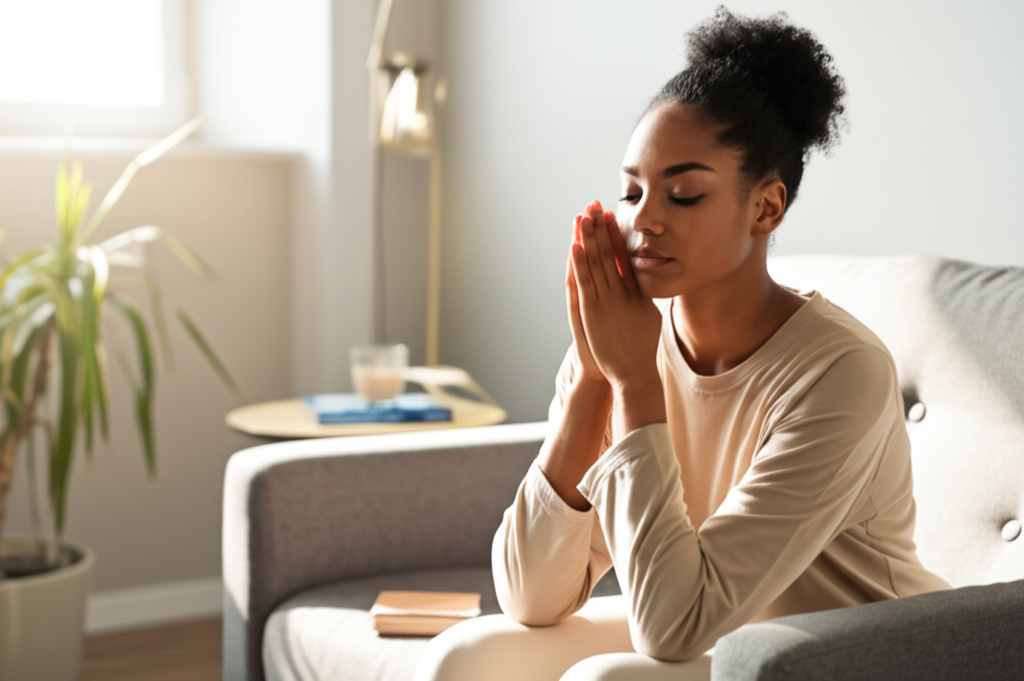Anxiety Treatment
Specialized therapy for anxiety disorders, helping you regain control and find peace of mind.

Understanding Anxiety
Living with anxiety can feel like carrying an invisible weight that others can’t see. At BLCC, we understand the real impact anxiety has on your daily life, and our team of specialists is here to help you find your path to relief and management.
Understanding Anxiety Disorders
Anxiety disorders go beyond the normal stress or worry that everyone experiences occasionally. They involve persistent, excessive fear or worry in situations that aren’t threatening, and these feelings can be challenging to control.
In Canada, anxiety disorders affect approximately 5% of the household population, making them among the most common mental health concerns in Toronto and nationwide. Many people with anxiety describe it as having a mind that won’t quiet down, constantly anticipating the worst outcomes even in ordinary situations.
What makes anxiety disorders particularly challenging is how they can affect nearly every aspect of daily life. From work performance and relationships to simple activities like grocery shopping or social gatherings, anxiety can limit your experiences and prevent you from fully engaging in life’s meaningful moments.
Signs You Might Be Experiencing Anxiety
Anxiety manifests differently for each person, and symptoms can vary in intensity and frequency. However, there are common signs that might indicate an anxiety disorder:
- Persistent worry or fear that isn’t easy to control. Feeling restless, keyed up, or on edge
- Physical symptoms like racing heart, shortness of breath, or stomach issues
- Avoiding situations that trigger anxiety
- Sleep problems, including difficulty falling asleep or staying asleep
- Difficulty concentrating or mind going blank
- Irritability or feeling easily fatigued
Experiencing these symptoms doesn’t necessarily mean you have an anxiety disorder, but speaking with a mental health professional can help you understand what you’re going through and find appropriate support.
Our Approach to Anxiety Treatment
At BLCC, we primarily use Cognitive Behavioural Therapy (CBT) for anxiety disorders, an evidence-based approach that helps you identify and change thought patterns that lead to anxious feelings and behaviours. This practical therapy provides you with tools to challenge anxious thoughts and gradually confront situations you may be avoiding.
For some clients, we also incorporate mindfulness-based techniques that help you stay grounded in the present moment rather than getting caught in cycles of worry. These practices can be beneficial for managing physical symptoms of anxiety.
Treatment typically begins with a thorough assessment to understand your specific experience with anxiety. From there, we develop a personalized treatment plan that might include weekly sessions, practical exercises to try between appointments, and strategies for managing anxiety in real-time.
When to Seek Professional Help
It’s time to consider professional support when anxiety begins interfering with your daily functioning or quality of life. This might include having trouble meeting work or school responsibilities, avoiding important activities, experiencing relationship difficulties due to anxiety, or finding that your worry consumes hours of your day.
Many people also seek help when self-help strategies no longer provide relief, or when physical symptoms of anxiety (like chest pain or insomnia) become concerning. Remember, seeking help for anxiety isn’t a sign of weakness—it’s a step toward reclaiming your well-being.
Our Anxiety Specialists
Take the First Step
Reaching out for help with anxiety takes courage, and we’re here to make that step easier.
To book an appointment with one of our anxiety specialists, call our Toronto office at (647) 726-2999 or use our secure online booking system.
We offer both in-person sessions at our downtown Toronto location and virtual appointments for clients throughout Ontario. Remember, effective treatment for anxiety exists—and finding the right support can make all the difference.






